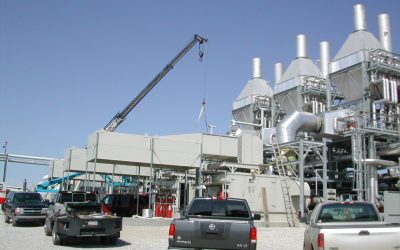Control panels are crucial in many industries because contemporary manufacturing places a premium on efficiency, precision, and dependability. In automated workplaces, these panels streamline operations, decrease errors, and allow for more effective machinery and equipment control. Control panel design and assembly experts produce tailored solutions that match unique operational requirements, ensuring that systems run smoothly and safely.
Understanding the Purpose of Control Panels in Industrial Settings
Control panels act as the primary hub of every automated system, coordinating operations like power distribution, motor control, and signal processing. Control panels enhance safety and maintainability by consolidating these tasks into a unit, enabling operators to operate conveniently and monitor complex systems. In today’s fast-paced manufacturing and industrial environments, the demand for intuitive and dependable control solutions has only grown, making the work of a control panel builder crucial. Control panels contribute to smooth manufacturing processes by efficiently integrating these components, decreasing the need for manual intervention and the danger of costly downtime. An expert constructor examines each client’s specific needs, customizing the layout, wiring, and programming to maximize operational efficiency and reliability.
Customization and Innovation in Control Panel Design
Each industrial setting has unique requirements, ranging from the type of machinery employed to the specifics of the manufacturing process. The approach begins with a thorough evaluation of the client’s objectives and challenges, which is followed by a customized design that answers unique operational needs. The design process includes not only technical configuration but also aesthetic, user interface, and environmental considerations. For instance, industries with strict hygiene standards, like food processing, often construct control panels to withstand constant washing, dampness, and potential exposure to corrosive substances. Innovation is crucial in the control panel market, with builders embracing developments in automation technology to create smarter, more responsive systems.
Key Considerations in Choosing the Right Control Panel Builder
Selecting a qualified control panel builder is critical for firms looking to improve their automation operations. A builder must have a thorough awareness of the industry in which they work in addition to technical expertise. This includes stress-testing components to ensure they can endure severe temperatures, vibrations, and other external variables that may impair performance. Many builders provide training, documentation, and technical assistance to help clients utilize their systems confidently. Some companies also offer regular maintenance services, which can help to extend the lifespan and improve the panel’s performance over time.
The Future of Control Panels in Industrial Automation
As industries expand, so will the technologies and methods utilized to manufacture control panels. These sophisticated capabilities not only improve monitoring and troubleshooting but also allow for proactive maintenance by predicting system issues before they arise. Such builders not only address today’s operational needs but also consider scalability and future upgrades, guaranteeing that the control panel stays useful as the client’s firm grows and technology progresses. Companies that collaborate with a skilled and imaginative builder can benefit from tailored solutions that increase productivity, promote safety, and contribute to long-term operational success.


